The Benefits of a Value-Based Care Healthcare Delivery Model
By HCDI Communications
Value-based care is a relatively new healthcare delivery model focused on the quality of care to improve patient outcomes and reduce costs while the fee-for-service model focuses on the quantity of care. Under the fee-for-service model, healthcare providers are reimbursed based on each individual service they provide to patient(s), and each service or procedure has an associated code that represents a specific fee. The fee-for-service model incentivizes providers to provide more services and order more diagnostic tests to generate more revenue which can lead to overutilization of healthcare services. The focus is on volume rather than quality. The benefits of a value-based care healthcare delivery model are laid out below.
 In the value-based care model, providers are required to measure and report patient outcomes and work with other providers and payers to improve care coordination and reduce costs. The United States has the highest healthcare costs in the world. According to the centers for Medicare and Medicaid Services (CMS), national health spending was $4.2 trillion in 2020, which represents 17.7% of the gross domestic product (GDP). The U.S. also has some of the worst outcomes from a global perspective. The new trend is towards the value-based care model which seeks to align the incentives of healthcare providers with those of patients and payers, to improve the quality of care and reduce overall costs of healthcare delivery.
In the value-based care model, providers are required to measure and report patient outcomes and work with other providers and payers to improve care coordination and reduce costs. The United States has the highest healthcare costs in the world. According to the centers for Medicare and Medicaid Services (CMS), national health spending was $4.2 trillion in 2020, which represents 17.7% of the gross domestic product (GDP). The U.S. also has some of the worst outcomes from a global perspective. The new trend is towards the value-based care model which seeks to align the incentives of healthcare providers with those of patients and payers, to improve the quality of care and reduce overall costs of healthcare delivery.
In addition to improved quality care, the value-based care model encourages the use of evidence-based practices and patient-centered care which has been shown to help reduce health disparities in health outcomes. In reducing costs, significant barriers can be lifted to accessing care which can have a positive effect on those most vulnerable.
HCD International’s Care Transformation Organization (CTO)
Practices in the state of Maryland can benefit from transitioning from the fee-to-service model to a value-based care model by joining the Maryland Primary Care Program. HCD International’s Care Transformation Organization as your CTO. With HCDI as your CTO, we have innovative solutions to assist practices in this transition.
HCDI’s CTO solutions offer the option to first screen for Social Determinants of Health (SDoH) barriers, such as patient inability to access healthcare services and food insufficiency, leveraging our trademarked Caring for Your Health e-Tool ™. By tapping into the collected SDoH insight, our multi-cultural staff works closely with primary care practices to develop a customized intervention to transition to the value-based care model. An intervention can involve implementing a combination of care coordination, preventative initiatives, and population health management strategies to enhance patient satisfaction, reduce costs, and improve health outcomes.
HCDI is now accepting new practices to join our CTO and hosting virtual and in-person educational sessions so practices can Get to Know HCDI as a CTO this June. To learn more about HCDI’s CTO and these educational sessions, visit www.hcdi.com/cto or contact us at CTOinfo@hcdi.com.






